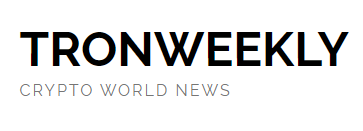You are here: Home / News / Solana Set to Vote on Bold Proposal: SIMD-0228 to Reduce Inflation by 80%

February 28, 2025 by Mwongera Taitumu
- Proposal aims to cut Solana’s inflation from 4.5% to 0.87%.
- Smaller validators worry about reduced staking rewards.
- Solana faces added pressure from FTX token unlock on March 1.
Solana is set to vote on SIMD-0228, a proposal that could drastically reduce its token inflation. Scheduled for epoch 753 starting on March 6, the proposal aims to adjust SOL emissions based on staking participation. If approved, it could reduce inflation from 4.5% to 0.87%, a significant shift in tokenomics for the blockchain.
Solana Proposes Token Emission Changes
The new proposal suggests that SOL emissions will increase when fewer tokens are staked and decrease when staking is high. The proposal aims to decrease rewards when staking is high and increase them when staking is low to curb excess inflation. This dynamic approach is expected to stabilize the token supply, maintain a balance in network participation and reduce the pressure on SOL’s price.
Solana’s co-founder, Anatoly Yakovenko, has expressed strong support for the proposal, calling it a transformative step for the blockchain. He and other supporters believe that the new emission structure will help reduce inflation and improve the network’s long-term sustainability. The plan is also backed by Multicoin Capital and Anza’s lead economist, who believe the move will stabilize tokenomics.
SIMD-0228 Proposal Raises Concerns
However, the proposal has sparked concerns within parts of the community. Some smaller validators worry the new model could favor larger players and leave them with fewer staking rewards. These validators argue that the proposal could lead to more concentration of staking rewards among big players, diminishing network decentralization.
 Solana Set to Vote on Bold Proposal: SIMD-0228 to Reduce Inflation by 80% 3
Solana Set to Vote on Bold Proposal: SIMD-0228 to Reduce Inflation by 80% 3Additionally, the proposal has sparked a debate due to recent changes to Solana’s burn mechanics. The SIMD-0096 update redirected transaction fees from burning to validator rewards which significantly reduced Solana’s burn rate. SIMD-0228 does not reinstate token burning but aims to address inflation through controlling emission.
Impact of SIMD-0228 on SOL
However, the proposal’s potential impact on staking rewards could create challenges for those who currently earn returns from staking. Although SIMD-0228 reduces inflation, it could lower staking rewards by up to 80% and possibly discourage participants from locking up their tokens. This could affect Solana’s decentralized finance (DeFi) ecosystem, which depends on active staking.
The timing of the vote is crucial for Solana and adds another layer of uncertainty. The March 1st unlock of 11.2 million SOL tokens from the FTX estate is expected to add selling pressure to the market. This event, combined with the broader bearish sentiment, has led to concerns about further declines in SOL’s price.
The upcoming vote on SIMD-0228 is critical for Solana’s future tokenomics. If passed, the proposal could stabilize inflation and improve the network’s tokenomics. However, its success will depend on how the community weighs the potential benefits against the risks of reduced staking rewards and market pressures. The outcome of the vote could shape Solana’s future trajectory.

 7 months ago
49
7 months ago
49




 English (US) ·
English (US) ·